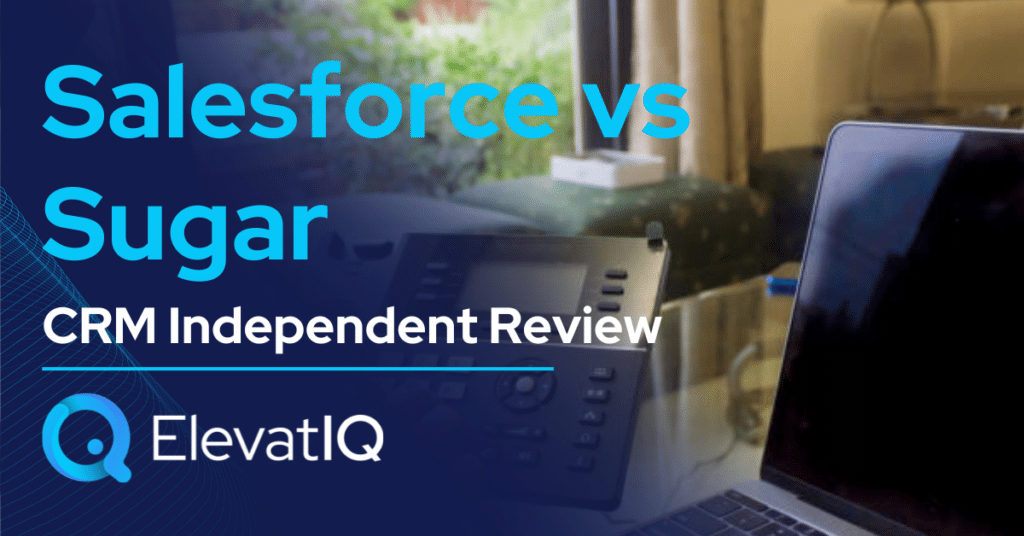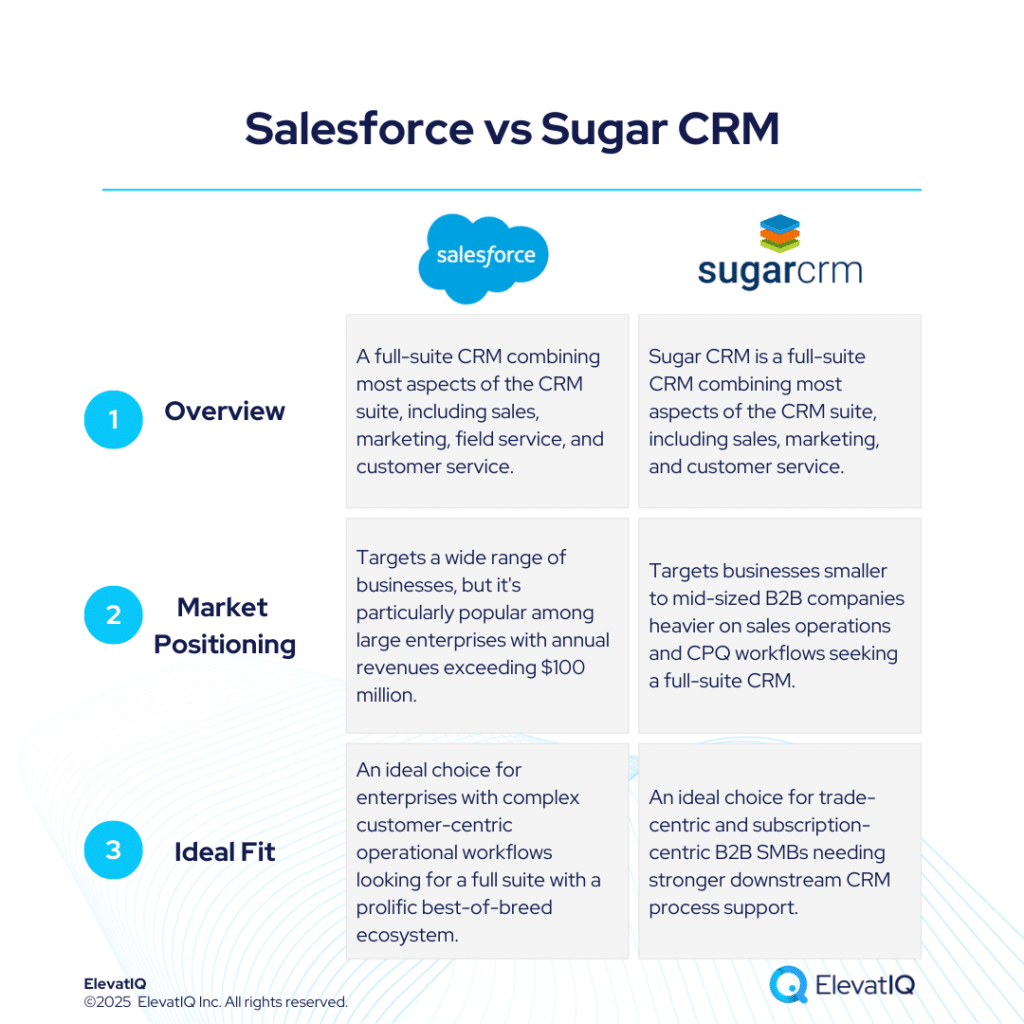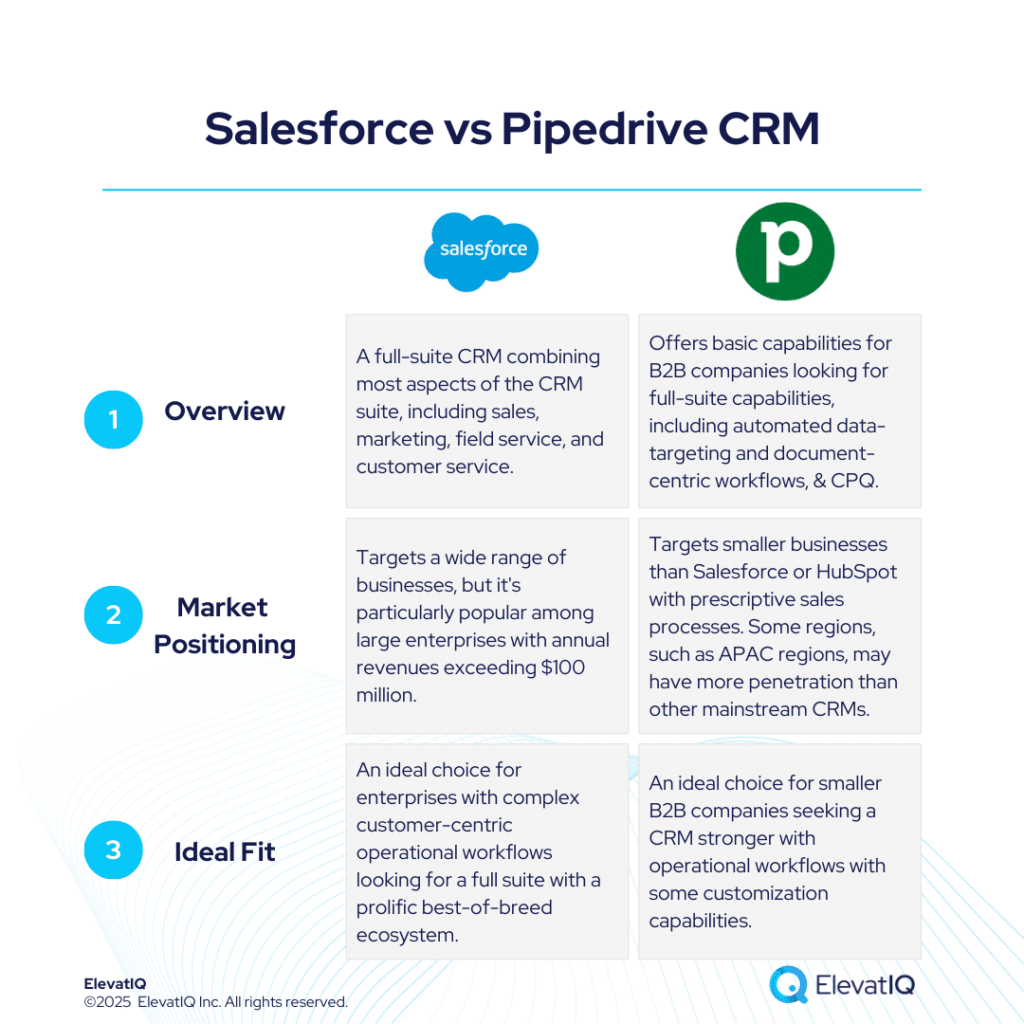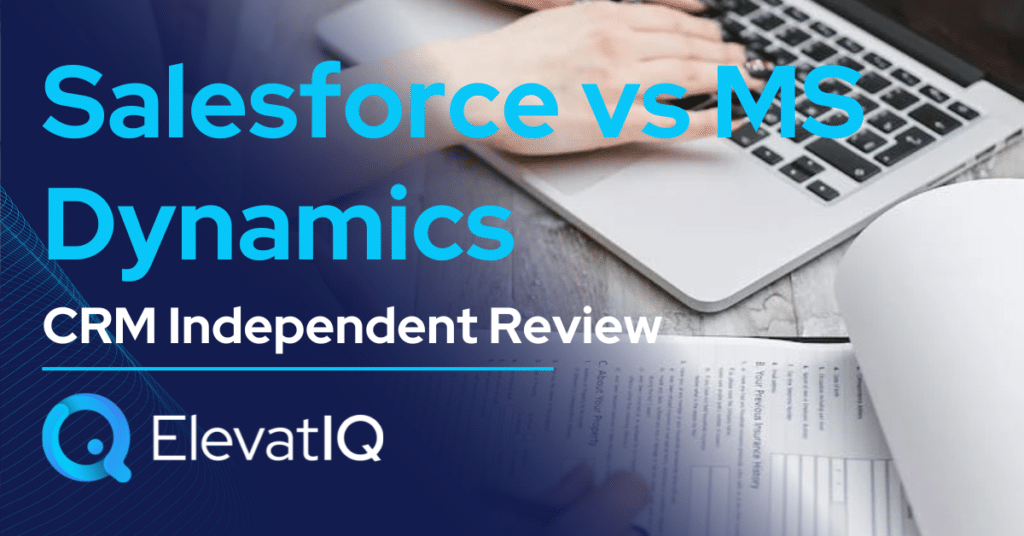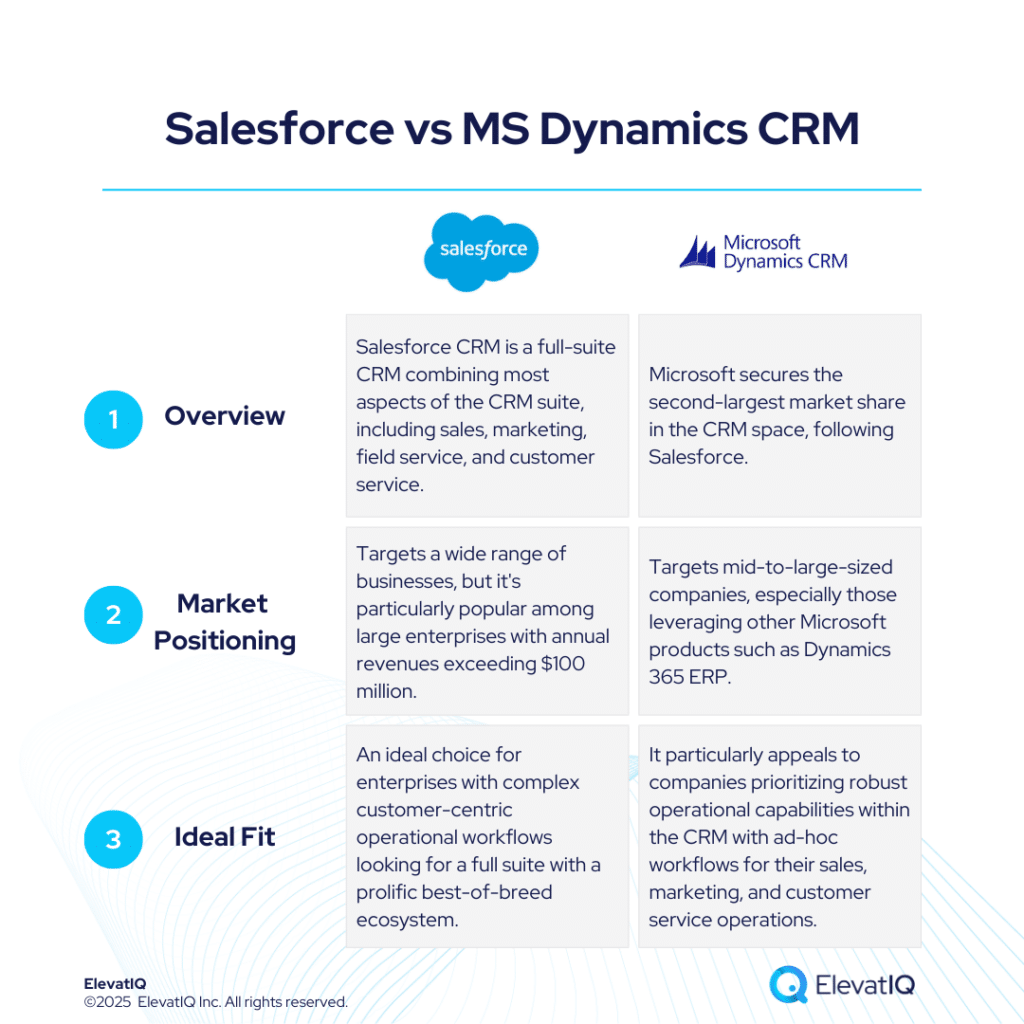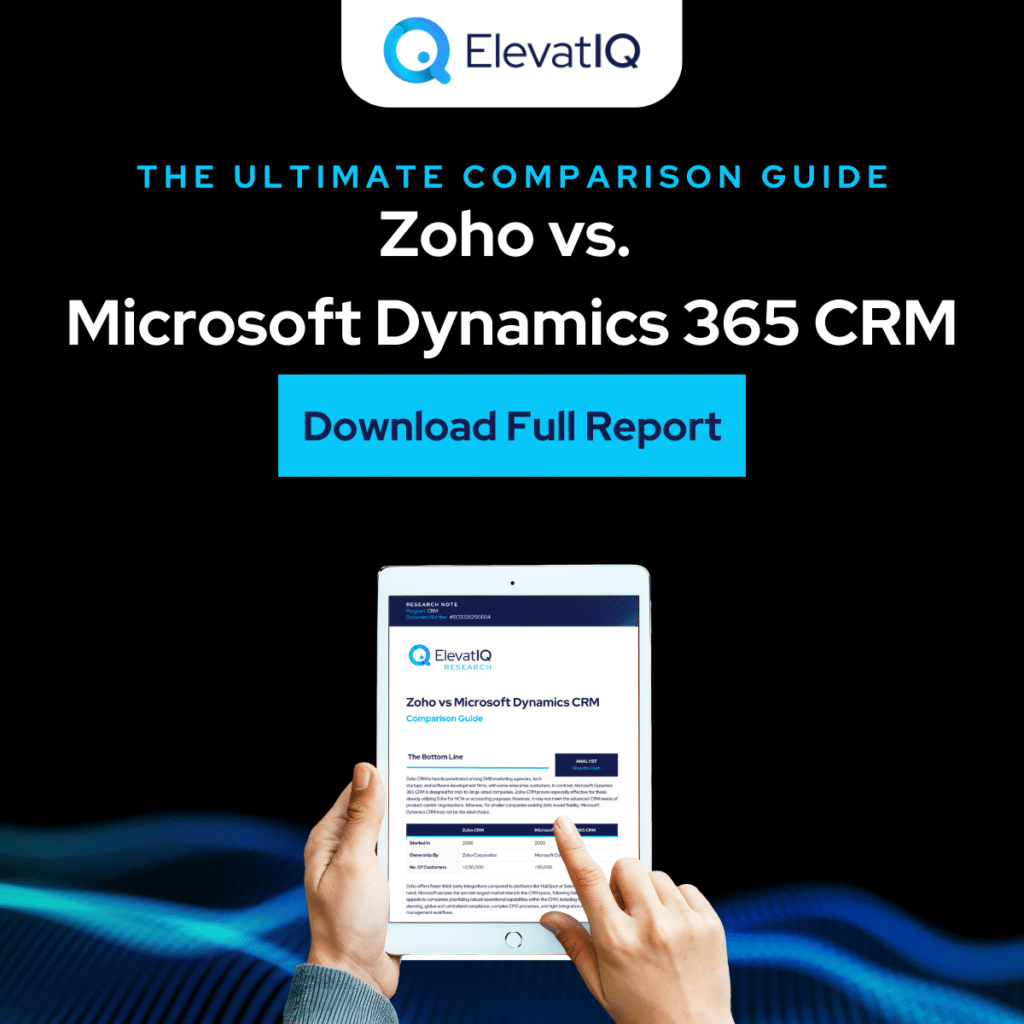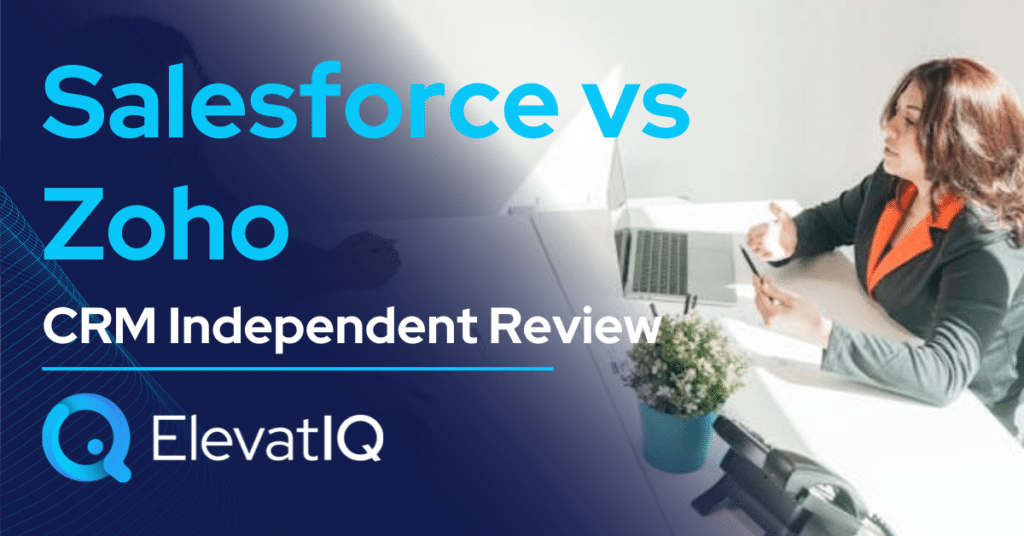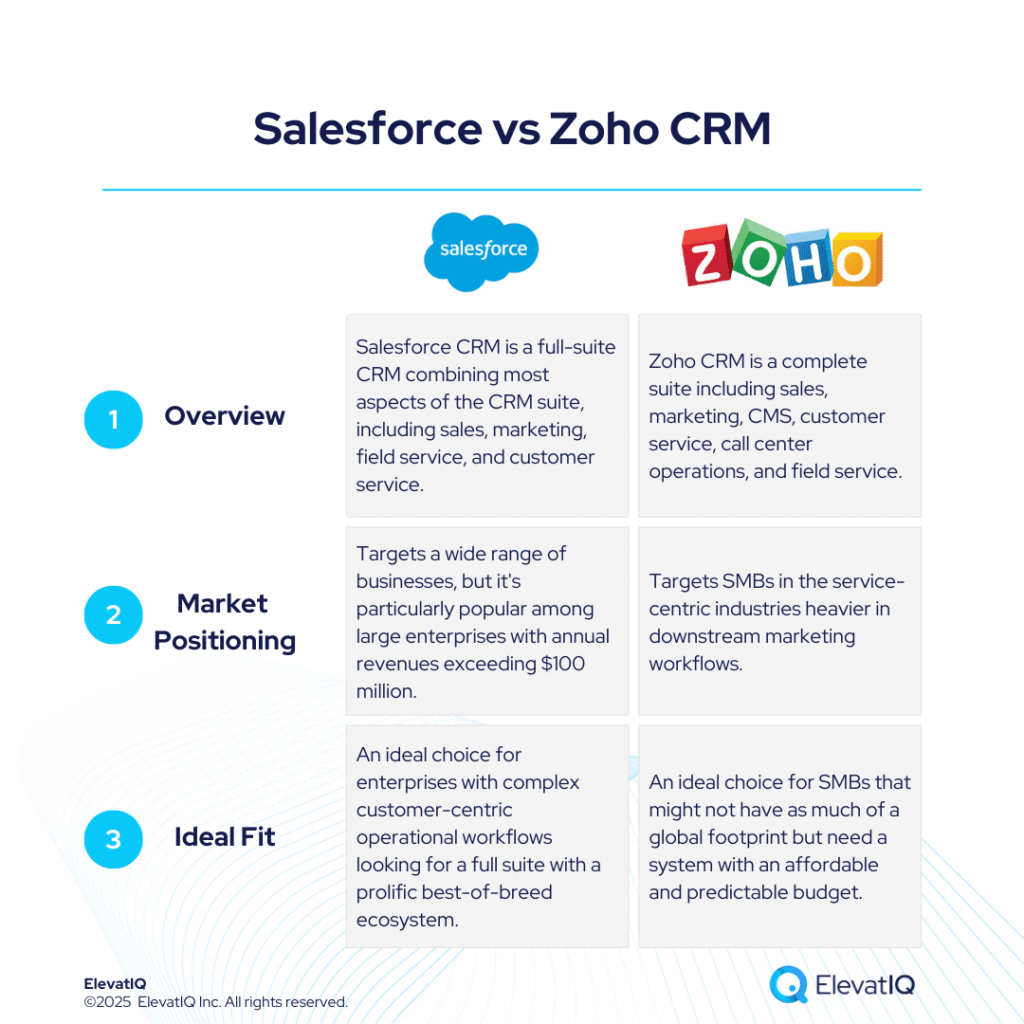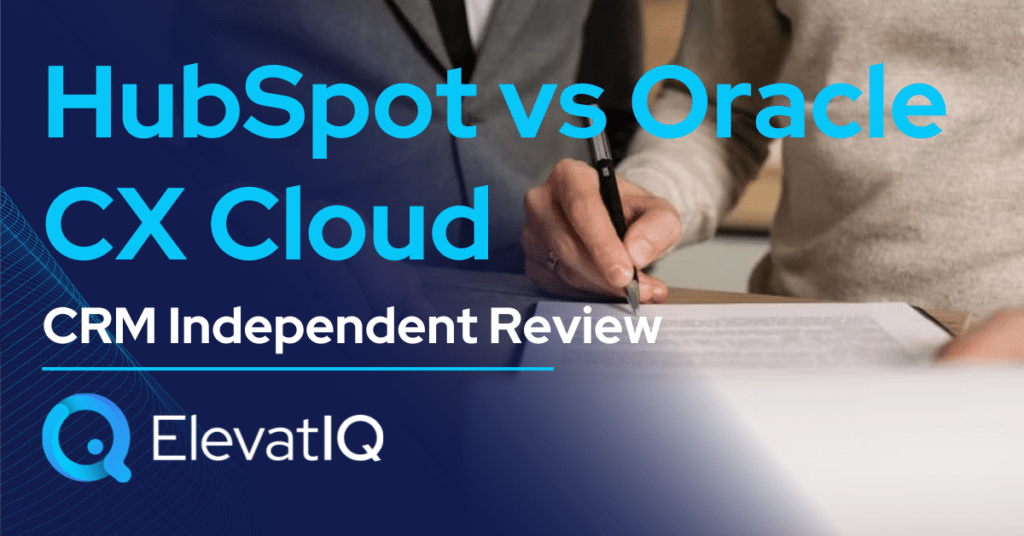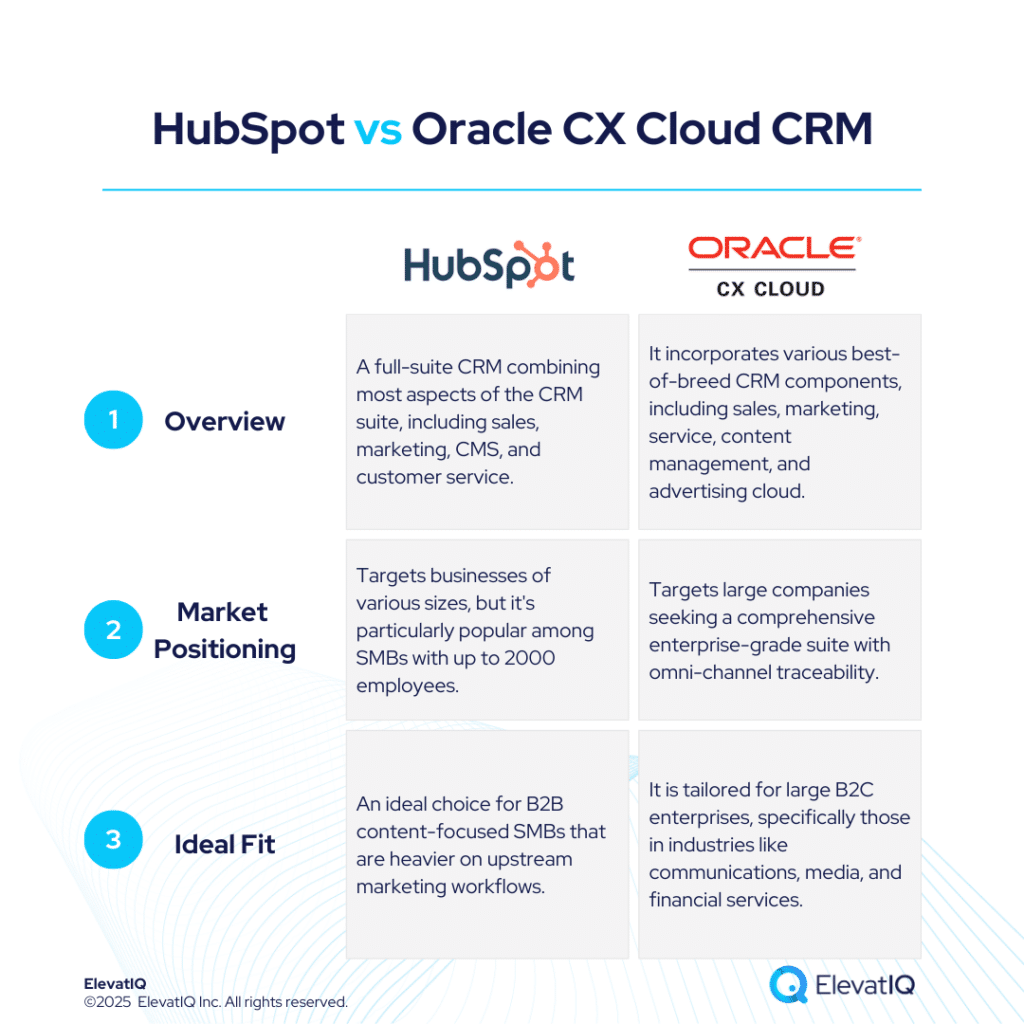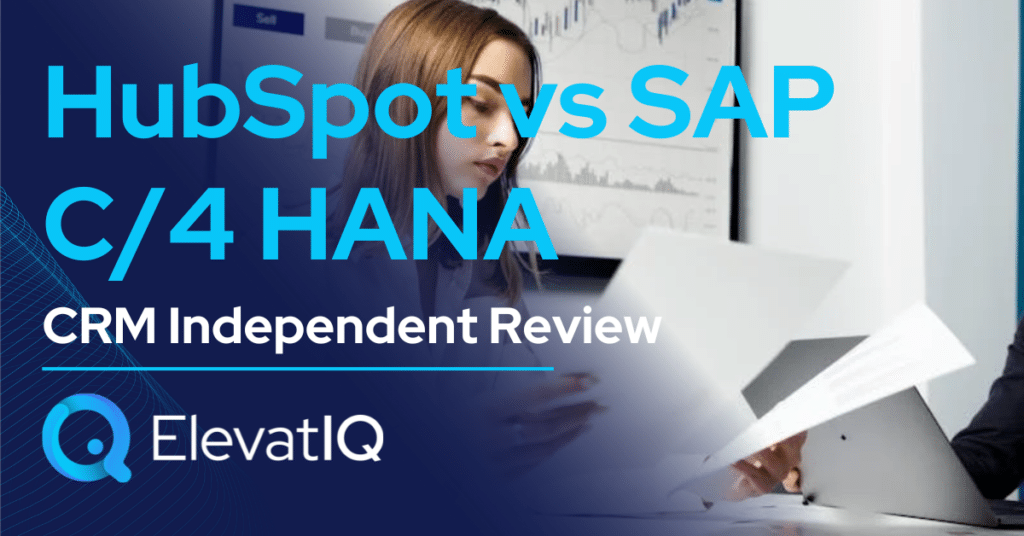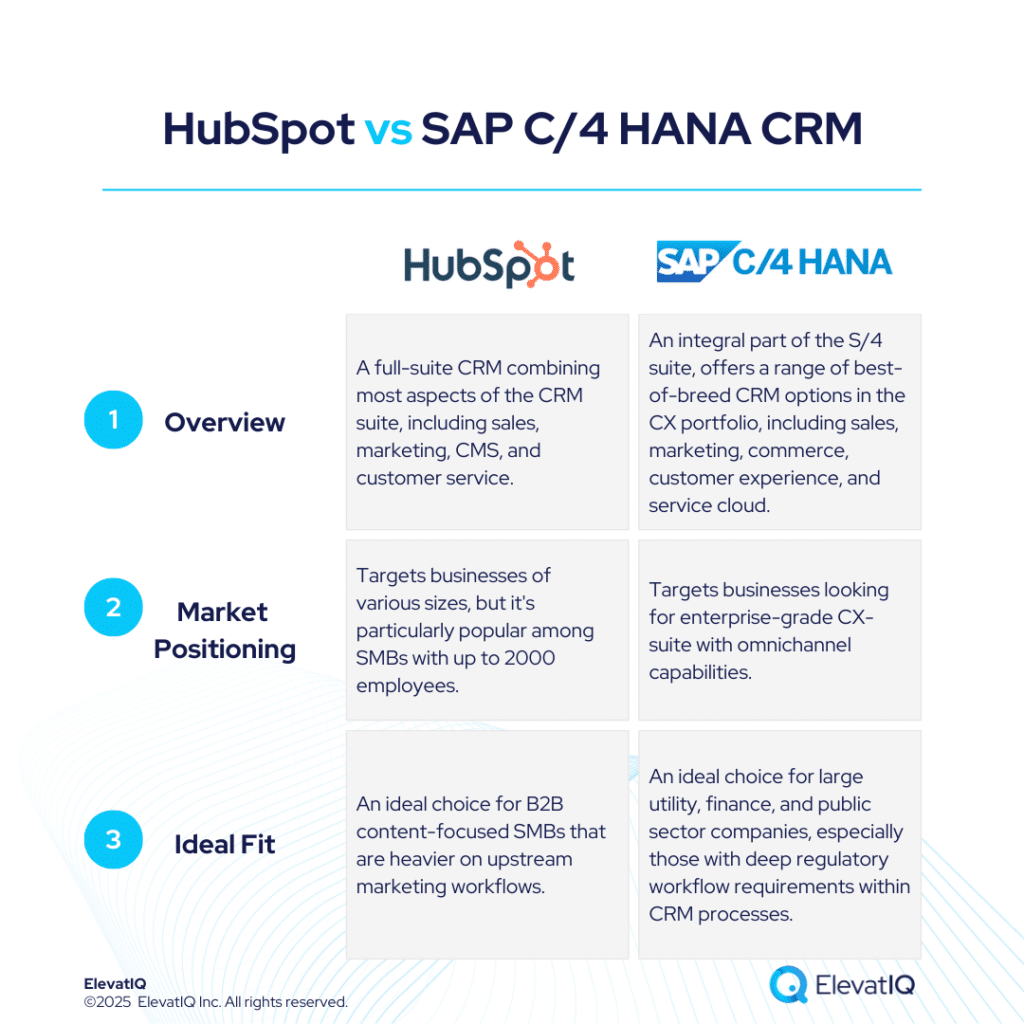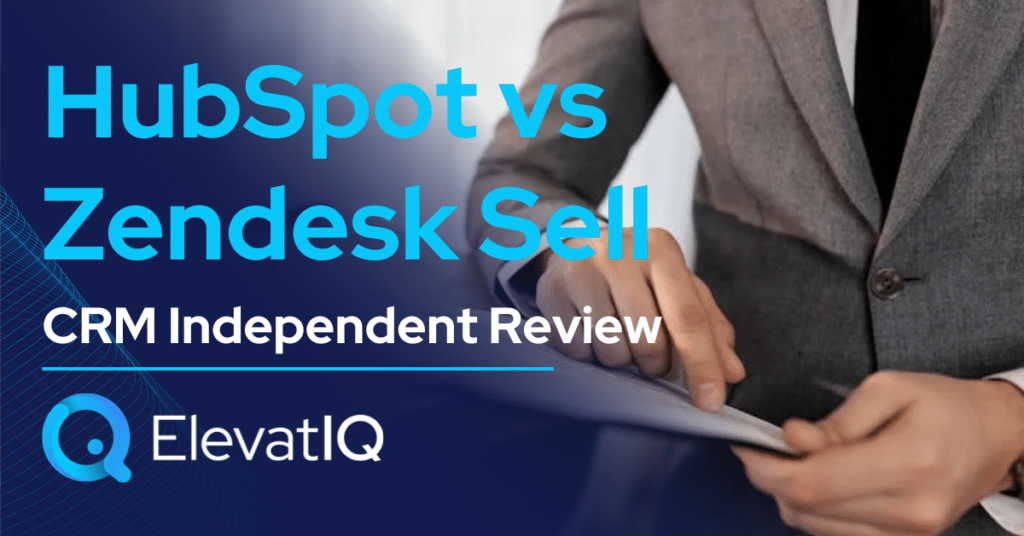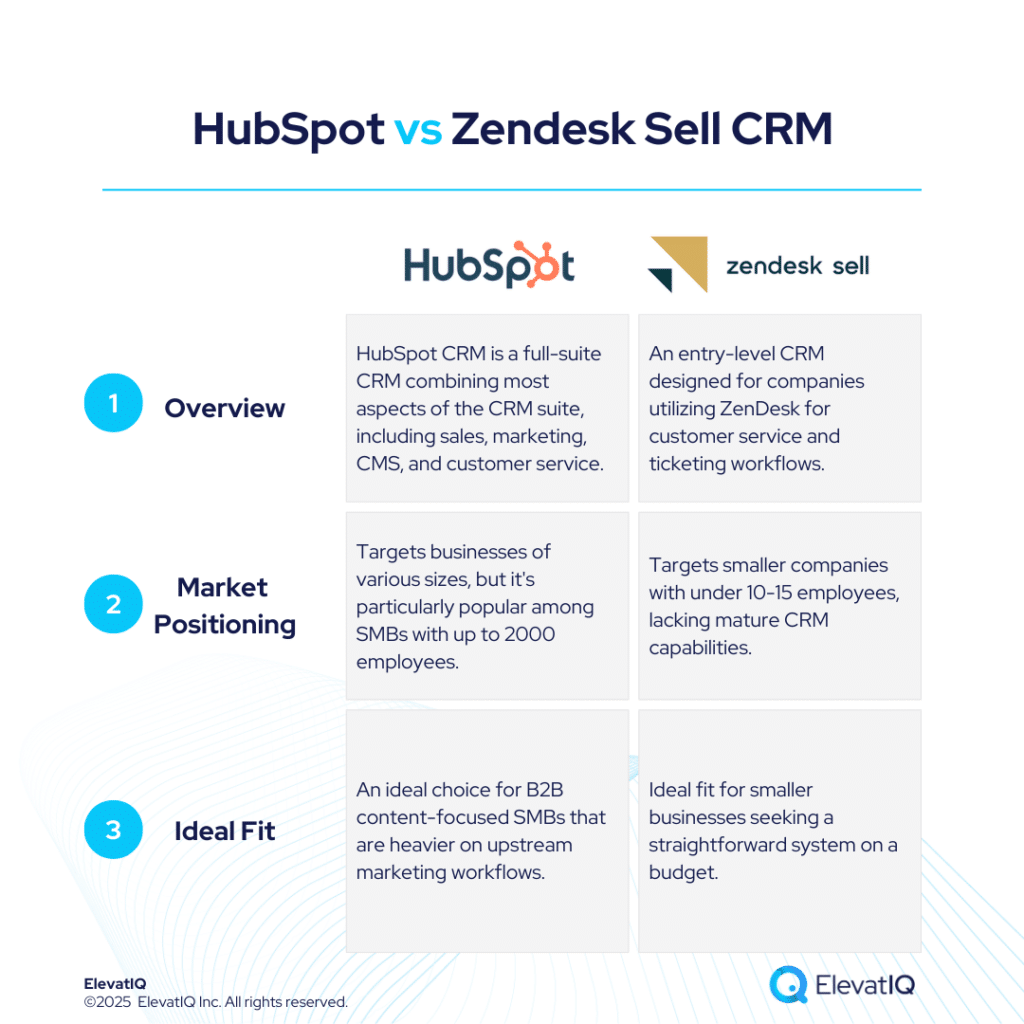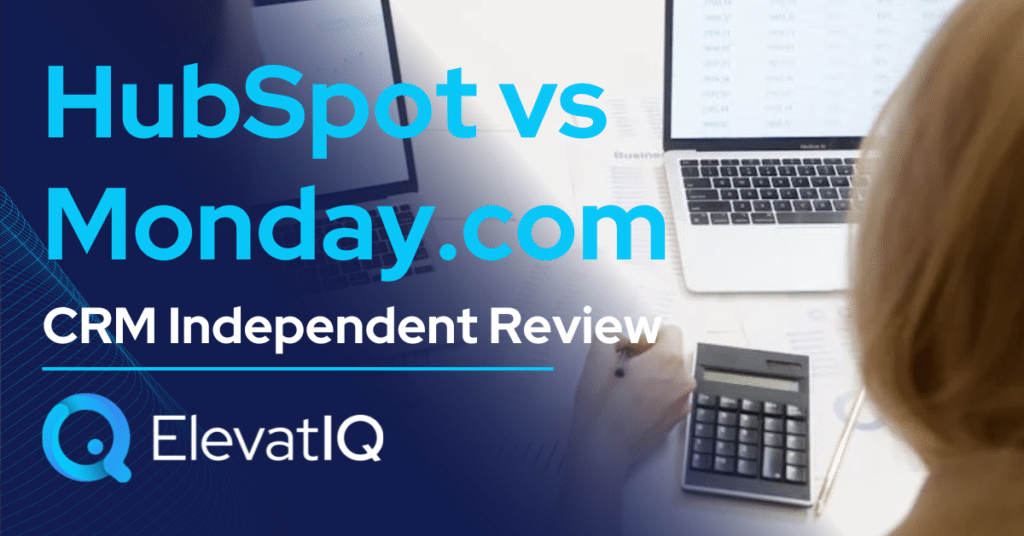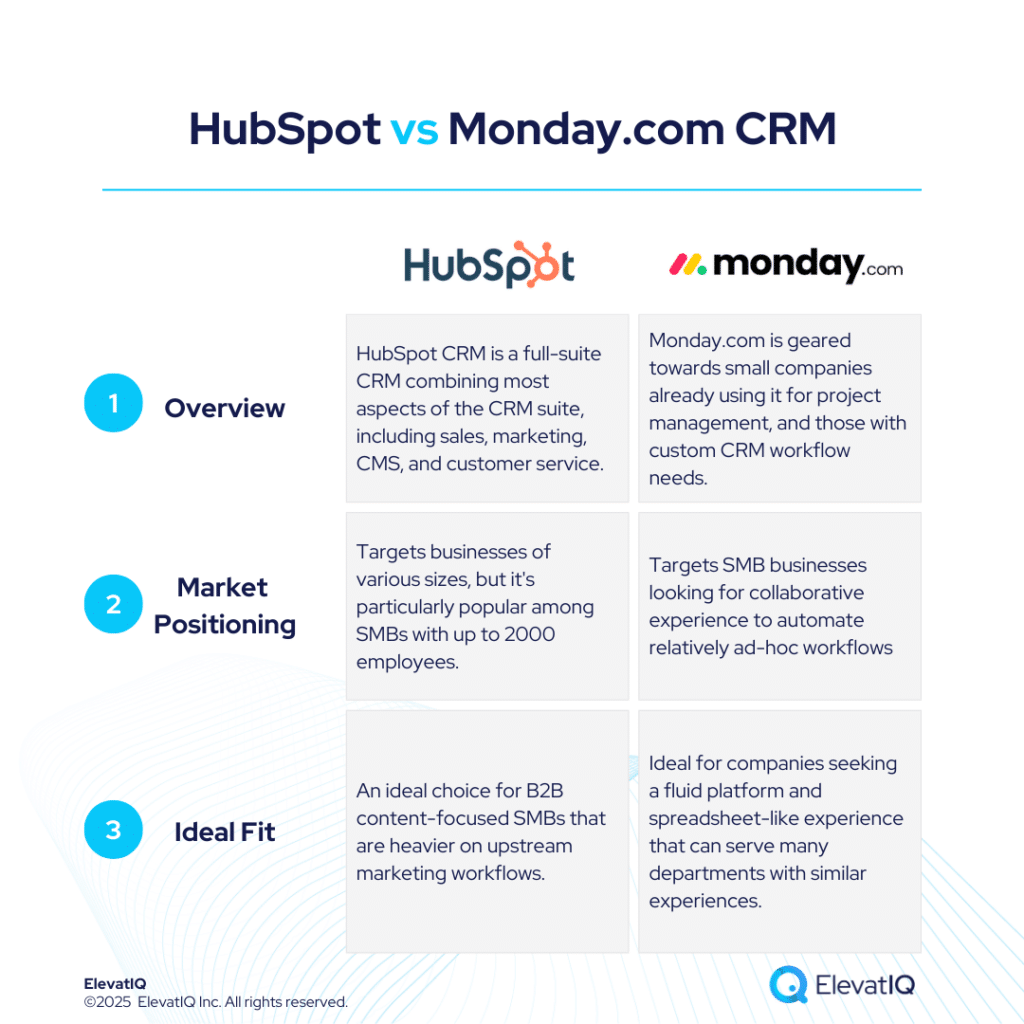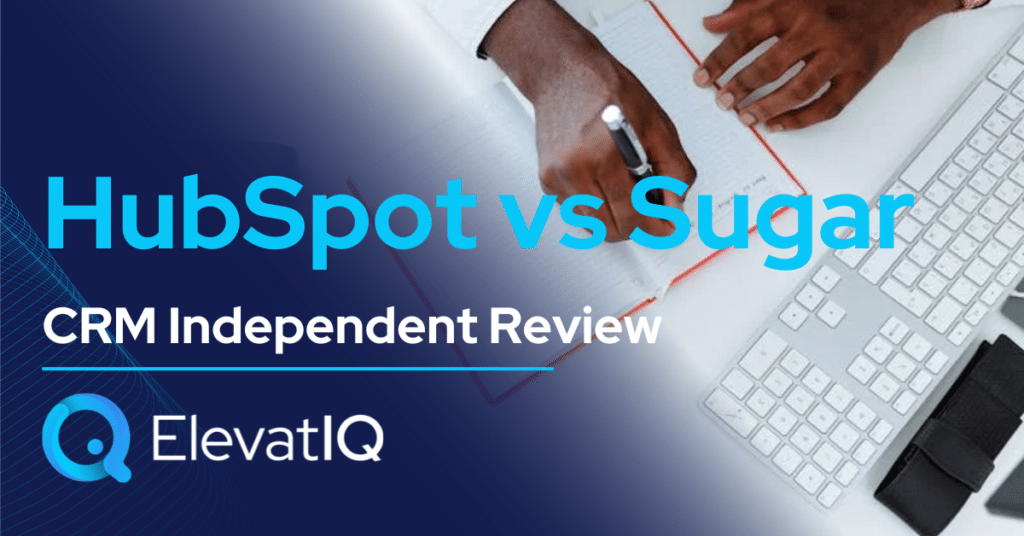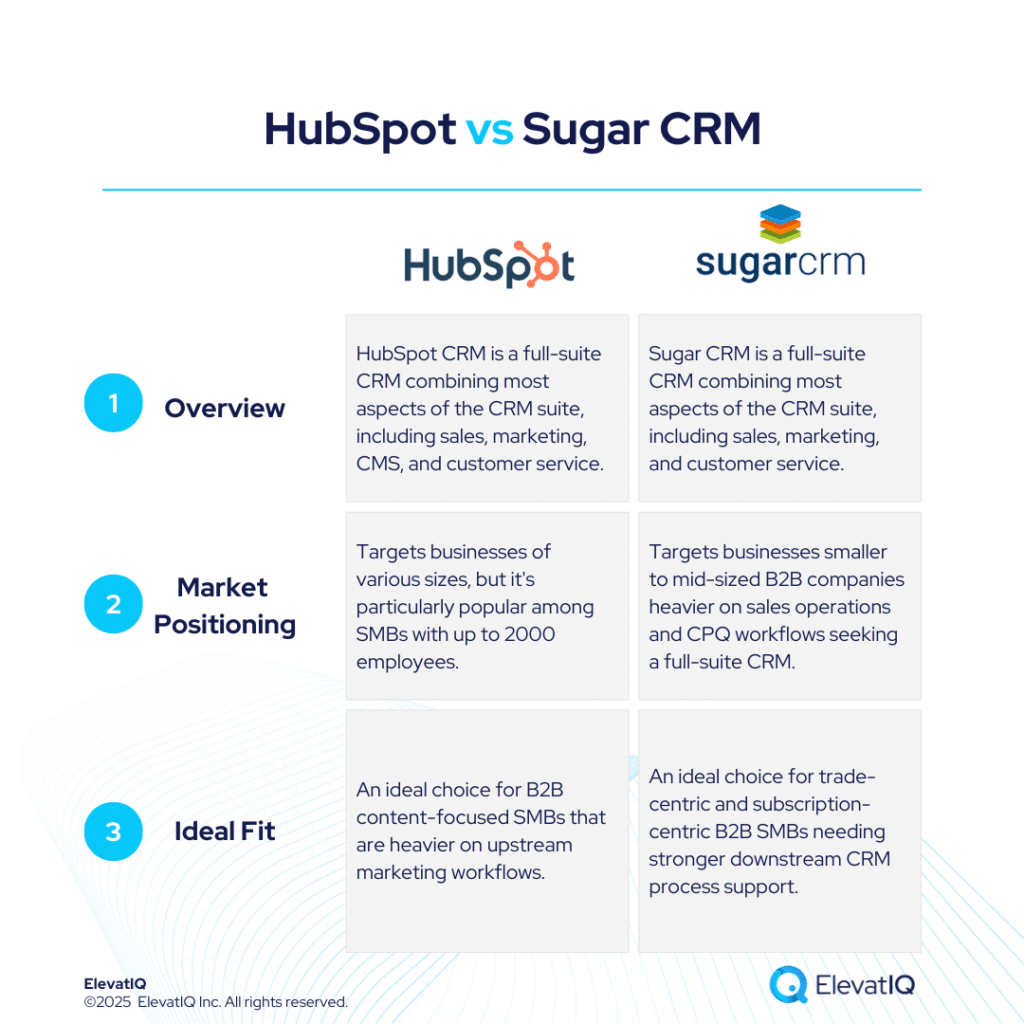Salesforce vs Monday.com CRM Independent Review
Salesforce serves companies of all sizes, featuring a startup-friendly version and excelling in managing complex CRM workflows. On the other hand, Monday.com is geared towards small companies already using it for project management and those with custom CRM workflow needs, such as real estate and non-profits. For companies requiring advanced downstream platforms and content workflows across channels, combining Salesforce with a marketing automation system like HubSpot is a superior solution. On the other hand, Monday.com may not be an ideal choice for companies that can easily find other options through a pre-built platform.
Salesforce is not always the ideal choice for entities with unique CRM processes, such as those in real estate or uniquely structured non-profit organizations. On the other hand, implementing Monday.com internally would require a tighter governance process, especially if it is being used for cross-functional workflows. To better understand Salesforce vs Monday.com CRM systems, let’s take an in-depth look into their features, strengths and weaknesses.
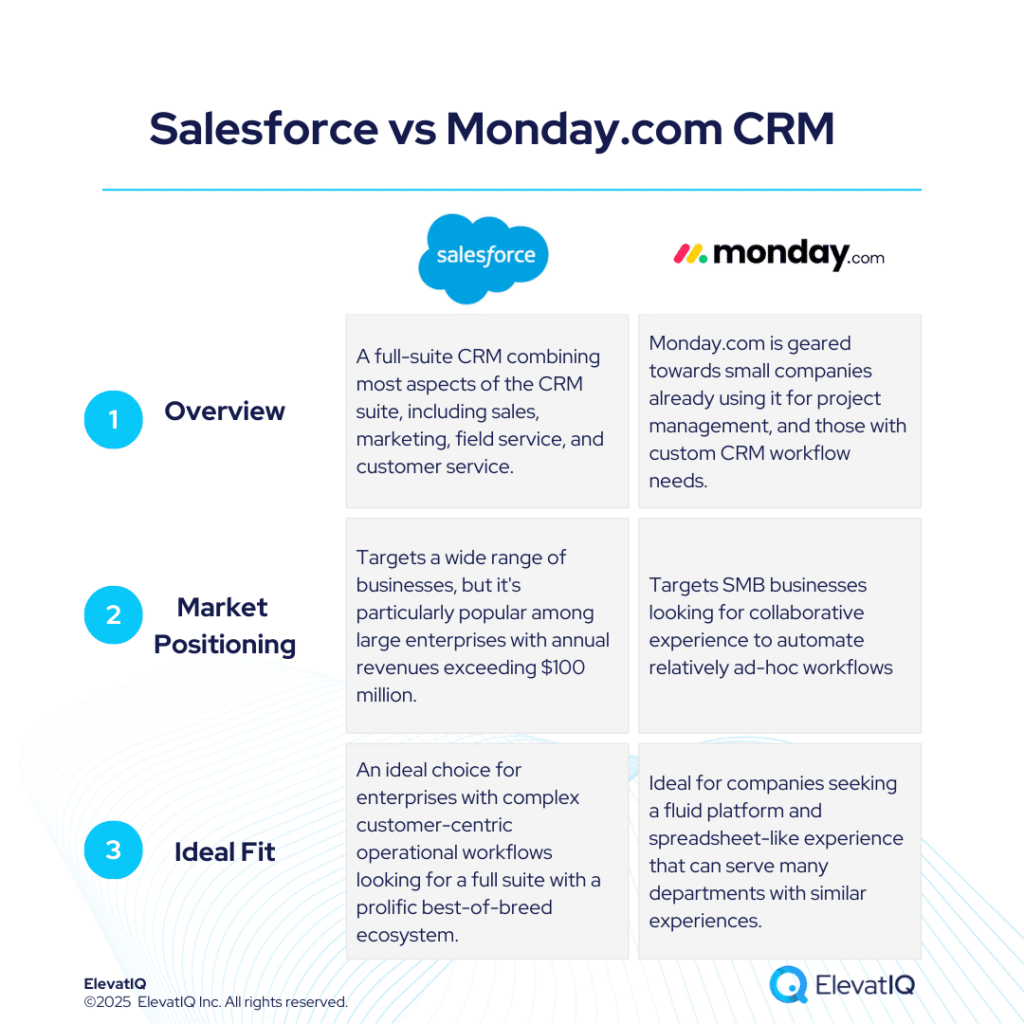

| Salesforce CRM | Monday.com CRM | |
| Started in | 1999 | 2017 |
| Ownership by | Salesforce Inc. | Publicly traded listed on the Nasdaq under the ticker symbol MNDY |
| No. of customers | >1,50,000 | >2,25,000 |
What Is Salesforce CRM?
Salesforce serves companies of all sizes, featuring a startup-friendly version and excelling in managing complex CRM workflows. While not always the ideal choice for entities with unique CRM processes, such as those in real estate or uniquely structured non-profit organizations, Salesforce comprehensively covers enterprise sales and marketing workflows throughout all phases—pre-sales, sales, and post-sales.
The platform stands out for its depth in industry-specific sales and marketing processes, offering pre-populated layers of business objects without the need for custom development on vanilla platforms. The Salesforce ecosystem holds authority in headless and commerce spaces, positioning it as an ideal enterprise Cx platform for various industries.
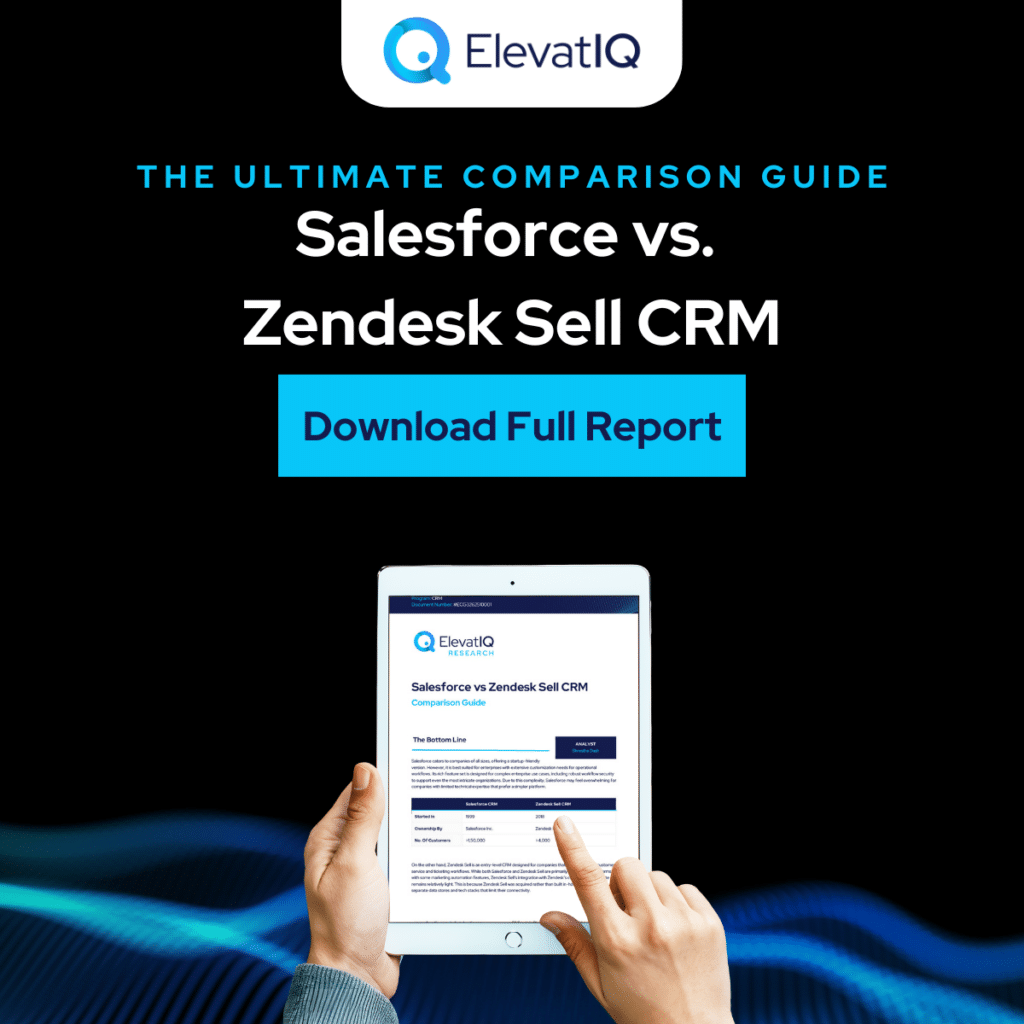
What Is Monday.com CRM?
Monday.com is geared towards small companies already using it for project management and those with custom CRM workflow needs, such as real estate and non-profits. However, it may not be an ideal choice for companies that can easily find other options through a pre-built platform.
Implementing Monday.com internally would require a tighter governance process, especially if it is being used for cross-functional workflows. The fluidity of the platform might lead to business users’ overengineering process, leading to the creation of technical backlog and maintenance nightmares in the long term. Also, confidently predicting and estimating the final costs requires solution architecture expertise.
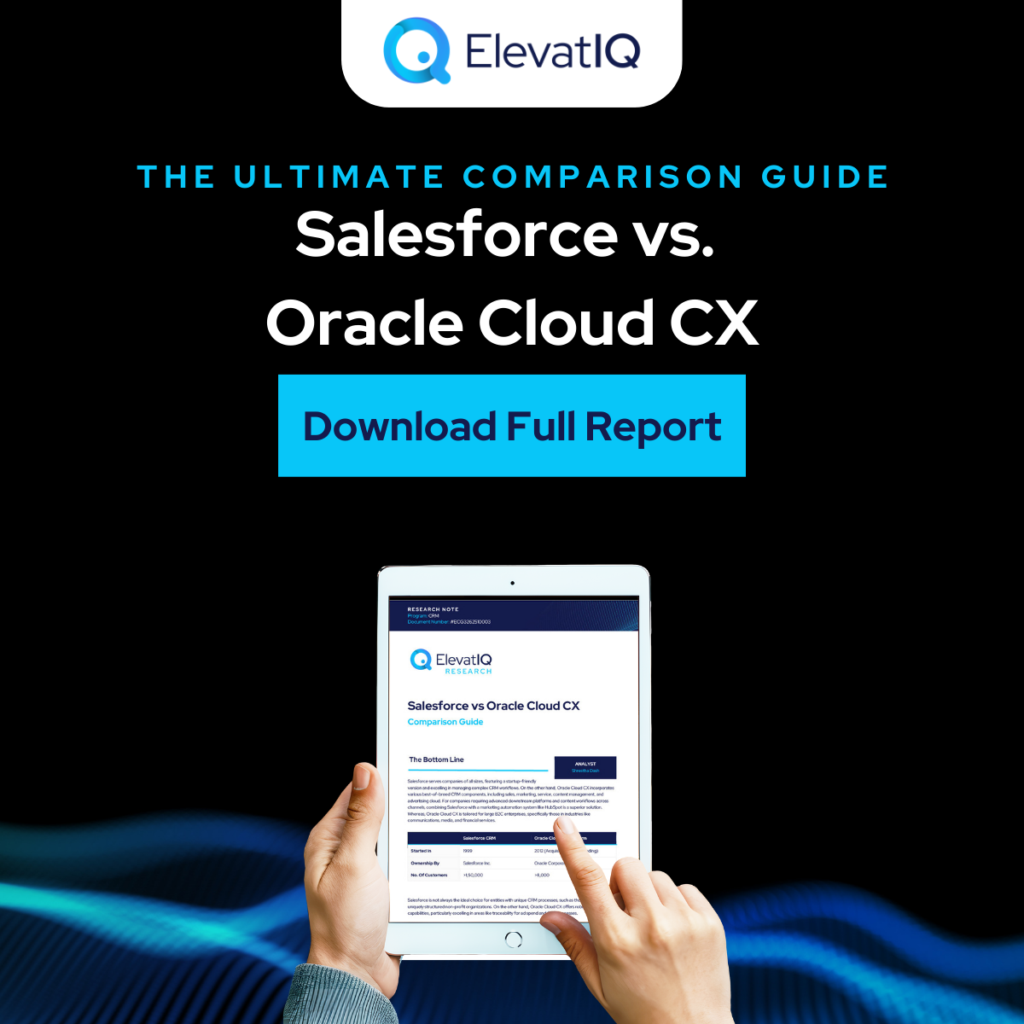
Salesforce vs Monday.com CRM Comparison
Navigating the choice between Salesforce vs Monday.com CRM is a significant decision for businesses particularly looking for operational efficiency and strategic alignment. Thus, this section delves into the comprehensive comparison of Salesforce vs Monday.com CRM across various critical dimensions.
| Salesforce CRM | Monday.com CRM | |
| Data Model | Has extensive data model, catering to the complex requirements of diverse industries and business models. | It has a fluid structure very similar to spreadsheets. |
| CRM Features | Ideal fit for companies with complex customer-centric operational workflows. | Relatively limited, and it does not offer all the advanced features. |
| Ecosystem | #1 choice for most marketing technologies to integrate with; #1 option for best-of-breed architecture. | Most popular options for downstream capabilities. |
| Marketing Automation | Acquired product with enterprise-grade analytics workflows and security. | Capabilities are limited natively. |
| Integration | Not as intuitive as with other products, such as HubSpot or Pipedrive. | It’s cell-level notification, and workflow capabilities are appealing for building custom integrations and workflows for ad-hoc processes. |
| Operational Capabilities | May not be as relational as Microsoft Dynamics CRM, although it offers deeper data layers compared to platforms like HubSpot. | Would require substantial development and consulting to get the same workflows available natively with other platforms. |
| Territory and Comp Planning | Unlikely to pose challenges with Salesforce, thanks to its sophisticated capabilities. | Would require substantial development and consulting to get the same workflows available natively with other platforms. |
| Customizability | May not be as intuitive as in other CRM systems, with a potentially complex and dated object model . | Serves as a highly customizable technical platform. |
| Price | Salesforce may have more expensive per-seat and per-email pricing, but the pricing is highly predictable. | Relatively inexpensive to start on the platform, but limitations baked with pricing tiers may lead to unexpected costs. |
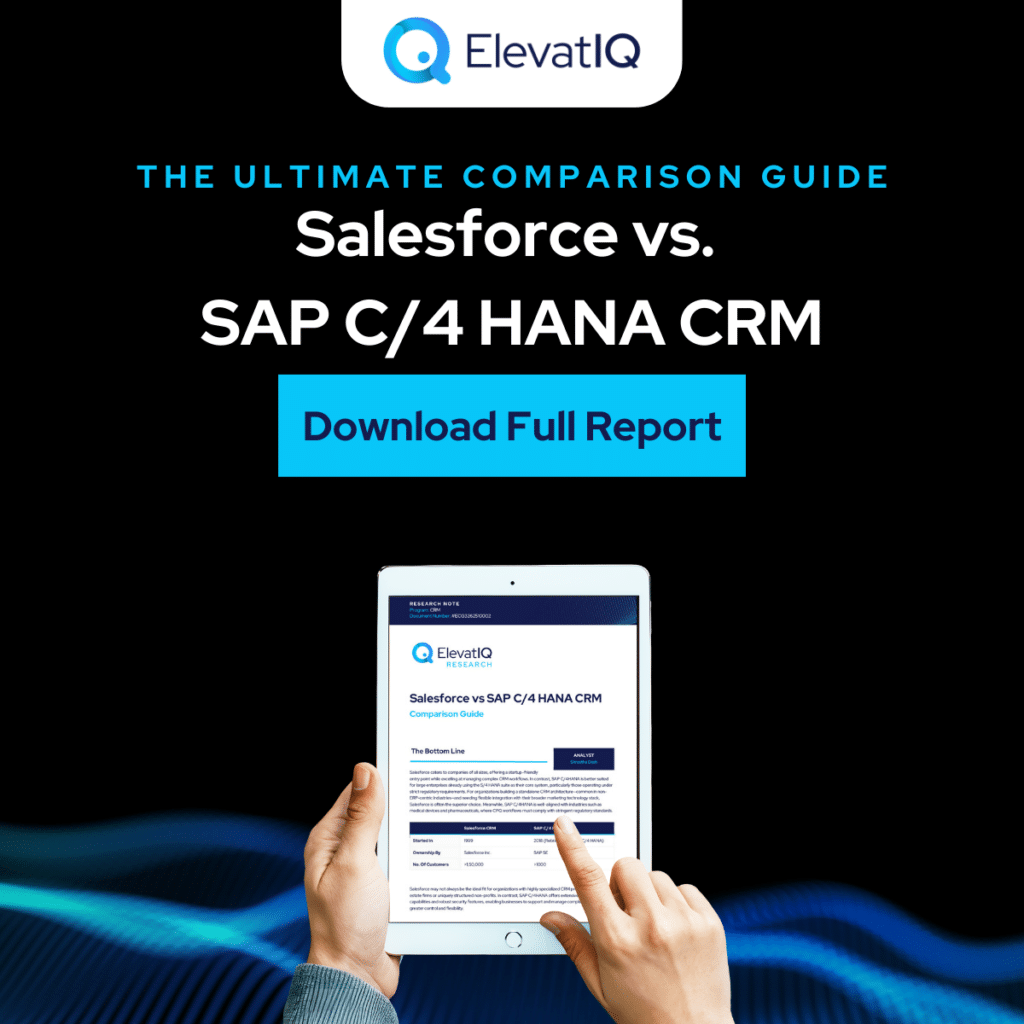
Salesforce vs Monday.com CRM Module Comparison
Both platforms offer a plethora of features and functionalities designed to streamline business operations and enhance efficiency. In this feature comparison, we delve into particularly the distinct capabilities of Salesforce vs Monday.com CRM across various critical dimensions, providing insights to aid businesses in making informed decisions regarding their CRM selection. Thus, this section discusses features under each of the following modules, particularly marketing, sales, customer service and e-commerce.
Marketing
In this section, we are discussing a detailed comparison of the marketing capabilities particularly offered by Salesforce vs Monday.com CRM. By examining their respective strengths and functionalities, particularly in managing marketing processes. Businesses can therefore gain valuable insights to determine the best-suited CRM solution for their marketing needs.
| Features | Salesforce CRM | Monday.com CRM |
| Content Creation | Provides content creation tools as part of its Marketing Cloud but might not be as intuitive as tools such as HubSpot, requiring more developer support. | Helps create and manage content such as email campaigns and landing pages. |
| SEO Tools | Offers SEO capabilities through Marketing Cloud to optimize search engine rankings. | Doesn’t have dedicated SEO tools. |
| Social Media Management | Provides social media marketing and listening tools as part of its Social Studio. | Doesn’t offer social media management features. |
| Email Marketing | Offers robust email marketing solutions with segmentation, automation, and analytics. | Includes email marketing capabilities to create, send, and track email campaigns. |
| Analytics | Offers comprehensive analytics and reporting through Marketing Cloud. | Offers capabilities to track and analyze your marketing, sales, and customer support metrics. |
Sales
In this comparison, we explore and analyze the sales capabilities of Salesforce vs Monday.com CRM, shedding light particularly on their respective strengths and weaknesses.
| Features | Salesforce CRM | Monday.com CRM |
| Lead Management | Offers advanced lead management with tracking, scoring, and nurturing capabilities. | Helps capture, track, and nurture leads throughout the sales process. |
| Sales Pipeline Management | Provides a customizable sales pipeline with detailed tracking and management. | Helps visualize and sales pipeline effectively. |
| Email Tracking | Monitors and tracks email engagement and responses. | Can track email interactions with your leads and customers. |
| Meeting Scheduling | Allows scheduling and managing meetings within the CRM. | Helps make it easy to set up and manage appointments with clients. |
| Collaboration Tools | Provides collaboration features like Chatter for team communication. | Offers collaboration tools that facilitate teamwork and communication. |
Customer Service
In this comparison, we explore and analyze the customer service capabilities of Salesforce vs Monday.com CRM, shedding light particularly on their respective strengths and weaknesses.
| Features | Salesforce CRM | Monday.com CRM |
| Ticket System | Provides case management and ticketing solutions. | Doesn’t have a dedicated ticketing system. |
| Live Chat | Includes live chat and messaging capabilities for customer service. | Doesn’t offer live chat functionality. |
| Customer Support Automation | Automates customer service tasks and workflows with Service Cloud. | Includes automation features such as automated email sequences and task reminders. |
| Omni-channel Support | Provides omni-channel customer support solutions. | Doesn’t provide omni-channel support. |
E-commerce
In this comparison, we explore and analyze the e-commerce capabilities of Salesforce vs Monday.com CRM, shedding light particularly on their respective strengths and weaknesses.
| Features | Salesforce CRM | Monday.com CRM |
| Product Catalog Management | Provides e-commerce product catalog management solutions. | Manages product catalog and SKUs. |
| Order Fulfillment | Offers tools for managing orders and fulfillment processes. | Offers features such as tracking incoming orders, managing inventory, and automating the fulfillment process. |
| Personalized Shopping Experiences | Provides personalized shopping experiences through Commerce Cloud. | Offers AI-powered tools to support personalized shopping experiences. |
Salesforce vs Monday.com CRM Pros
When evaluating CRM solutions, understanding the distinct advantages of Salesforce vs Monday.com CRM is crucial. In this section, we are particularly exploring the strengths of Salesforce vs Monday.com CRM across various dimensions. Thus, shedding light on their respective capabilities and functionalities.
| Salesforce CRM | Monday.com CRM |
| One of the richest data models among best-of-breed CRMs. | Serves as a highly customizable technical platform |
| Has enterprise-grade workflow security. | Excels in ad-hoc workflows and offering superior customization capabilities. |
| Offers a comprehensive portfolio and ecosystem. | Easily build automated actions and integration with other apps. |
| Has the ability to customize platform for enterprise use cases. | Best for industries such as non-profit and real estate. |
Salesforce vs Monday.com CRM Cons
Just like recognizing strengths is important, it’s also crucial to weigh the specific drawbacks of Salesforce vs Monday.com CRM. Therefore, in this section, we will delve into the limitations and challenges associated with Salesforce vs Monday.com CRM across various operational and financial dimensions.
| Salesforce CRM | Monday.com CRM |
| It is one of the best CRM options for ad-hoc flows. | Risk of over-engineering processes, potentially impacting downstream workflows. |
| Expensive to customize. | Fundamentally a project management tool, necessitating the construction of advanced CRM functionality and reports. |
| The data model is not as relational as MS Dynamics CRM. | May lack referential integrity between business objects, |
| It may not be the best fit for companies requiring deep collaboration with ERP systems. | Upstream integration options would be limited. |
Conclusion
Choosing between Salesforce vs Monday.com CRM depends on the scale, complexity, and customization needs of a business. Salesforce stands out as a full-suite CRM tailored for enterprises with complex workflows, deep integrations, and industry-specific solutions. It is particularly suited for organizations requiring robust sales, marketing, customer service, and e-commerce functionalities, along with a well-established ecosystem. However, its customization and implementation costs can be high. Monday.com CRM, on the other hand, is an agile and customizable platform designed for small to mid-sized businesses looking for a flexible, spreadsheet-like experience. It is ideal for companies that prioritize ad-hoc workflows and ease of use, though it may require additional development to match the capabilities of a dedicated CRM like Salesforce.
Both systems have their strengths and limitations, so businesses should carefully evaluate their specific needs. Also, seeking assistance from an independent CRM consultant can significantly aid the decision-making process. To get a 360-degree view of feature comparisons, it is essential to explore not only Salesforce vs Monday.com CRM but also insights from other analyses such as Salesforce vs Zoho, MS Dynamics, Pipedrive, and Sugar CRM independent review.



